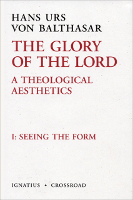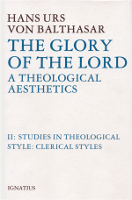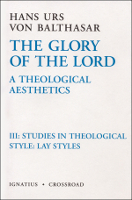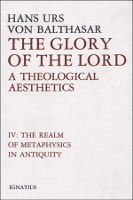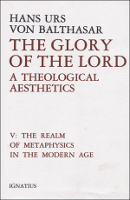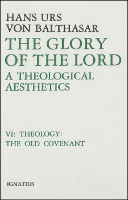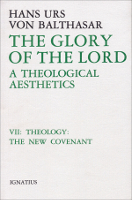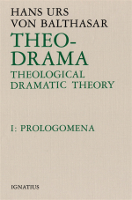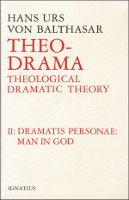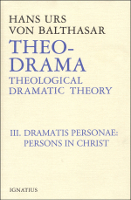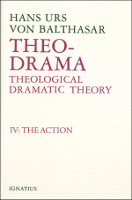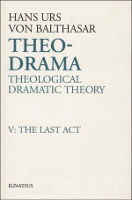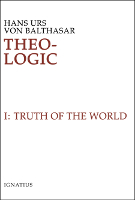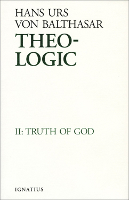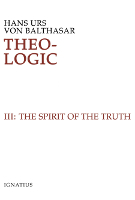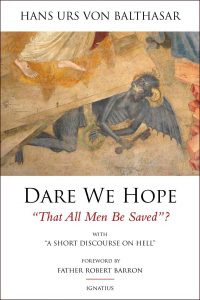The Trilogy
The Glory of the Lord
Probably the most important sustained piece of theological writing to appear since Karl Barth’s Church Dogmatics, von Balthasar’s work restores aesthetics and contemplation to their rightful place in Christian theology. Armed with a remarkable knowledge of the theological and metaphysical traditions as well as of Western letters, von Balthasar shows how the Biblical vision of the divine glory, revealed in the crucified and risen Christ and reflected in the great theologies of the Christian tradition, fulfills and transcends the perception of Being in Western metaphysics.
“An attentive reading of this magisterial effort provides an immense wealth of rewards; it displays throughout a breadth of vision and a serenity of perspective that only rarely finds a parallel in our century.”
—America“The translation and publication of The Glory of the Lord in English is a major event in the theological world of our time… This is the kind of work which renews one’s whole understanding of what the theological enterprise is.”
—The Church Times
Theo-Drama
In this second part of his great theological trilogy, Hans Urs von Balthasar shows how many of the trends of modern theology (e.g. “event”, “history”, “orthopraxy”, “dialogue”, “political theology”) point to an understanding of human and cosmic reality as a divine drama. Von Balthasar is concerned with the dramatic character of existence as a whole, approaching the topic through a consideration of the various conditions and situations of mankind as a drama that involves both the Creator and his creatures. He explores the characters and actions that make up this grand cosmic drama, maintaining that it is in the theater that man attempts a kind of transcendence to observe and to judge his own truth about himself. He sees the phenomenon of theater as a source of fruitfulness for theological reflection on the cosmic drama that involves earth and heaven.
Theo-Logic
Theo-Logic is the third and crowing part of the great trilogy of the masterwork of theologian Hans Urs von Balthasar, following his first two parts, The Glory of the Lord and Theo-Drama. Theo-Logic is a variation of theology, it being about not so much what man says about God, but what God speaks about himself. Balthasar does not address the truth about God until the first reflects on the beauty of God (The Glory of the Lord). Then he follows with his reflections on the great drama of our salvation and the goodness and mercy of the God who saves us (Theo-Drama). Now, in this work, he is ready to reflect on the truth that God reveals about himself, which is not something abstract or theoretical, but rather the concrete and mysterious richness of God’s being as a personal and loving God.
Other Works
Dare We Hope “That All Men Be Saved”?
This book is perhaps one of the most misunderstood works of Catholic theology of our time. Critics contend that von Balthasar espouses universalism, the idea that all men will certainly be saved. Yet, as von Balthasar insists, damnation is a real possibility—for others but also for ourselves. Indeed, he explores the nature of damnation with sobering clarity. At the same time, he contends that a deep understanding of God’s merciful love and human freedom, and a careful reading of the Catholic tradition, point to the possibility—not the certainty—that, in the end, all men will accept the salvation Christ won for all. For this all-embracing salvation, von Balthasar says, we may dare hope, we must pray, and with God’s help we must work.
The Catholic Church’s teaching on Hell has been generally neglected by theologians, with the notable exception of von Balthasar. He grounds his reflections clearly in Sacred Scripture, and in Catholic teaching. While the Church asserts that certain individuals are in Heaven (“saints”), it never declares a specific individual to be in Hell. In fact, the Church hopes that in their final moments of life, even the greatest sinners would have repented of their terrible sins, and be saved.
Sacred Scripture states, “God… desires all men to be saved and to come to the knowledge of the truth. For there is one God, and there is one Mediator between God and man, the man Christ Jesus, who gave himself as a ransom for all.” (1st Timothy, 2:4)
“Truly deep theological questions can rarely be answered with a simple yes or no. Rather, they are approached by the careful theologian, who circles around them, making distinctions, bringing essential aspects to light. The issue of who and how many will be saved is surely one of the thorniest theological puzzles in the Catholic tradition, and I don’t know any theologian—classical or contemporary—who performs the nimble task of bringing out the complexity and profiles of this issue better than Hans Urs von Balthasar. In this short but rich text, you will hear of grace, punishment, mercy, the awful self-absorption of sin—but above all of hope.”
— Fr. Robert Barron, Rector/President Mundelein Seminary/University of Saint Mary of the Lake

